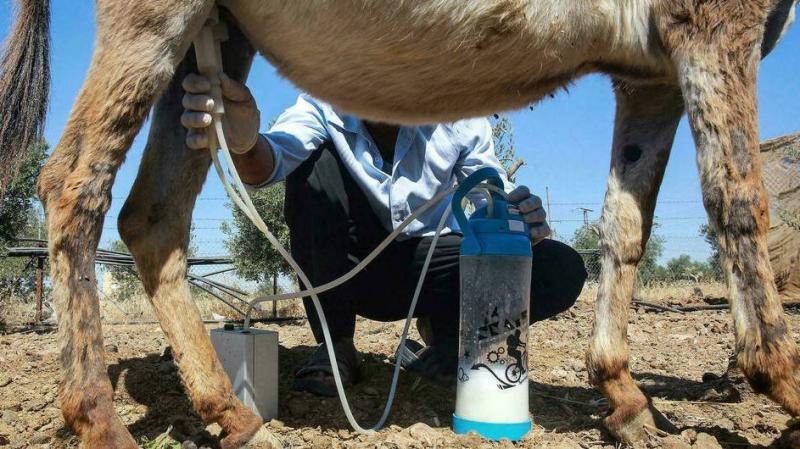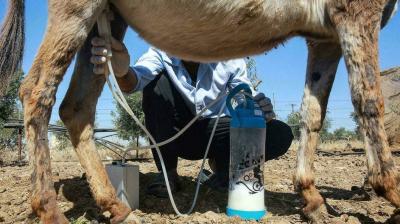Customers are flocking to purchase donkey milk soap, free of chemicals, produced in the first project of its kind in Jordan and the Middle East, hoping it will provide a magical solution for their skin problems after months of mockery regarding its main ingredient. At a small farm in Madaba, southwest of Amman, twelve donkeys sway daily, waiting for their milk to be transported to a small workshop in Amman for soap production. Imad Atiyat, a 32-year-old co-founder of the "Donkey Milk Soap Production" project, says, "At first, many people mocked and ridiculed the idea, saying (is there no other option but to milk a donkey?) or (it's crazy to put something related to a donkey on my body)."
The young man, standing next to a barn made of recycled materials and a large blue shipping container, adds, "The situation changed" after the project distributed 160 free soap bars. Following that, orders started to "exceed 4,500 soap bars per month."
After a breakfast of fodder and vegetables, the donkey is milked using an electronic device, yielding only one liter per day in batches, while another liter is left to feed its offspring. The milk is stored in a refrigeration room on the farm, with quantities transported to the factory in Amman every three days.
Each liter of donkey milk is suitable for producing thirty soap bars, mixed with olive oil, almond oil, coconut oil, and shea butter. Salma Al-Zoubi, the project's initiator, points out, while mixing the ingredients in a large metal bowl, that "this product exists in other countries around the world," indicating that it's not purely an Jordanian innovation. However, the idea of having the product "100% Jordanian with all production ingredients from Jordan" fascinated her and her partners to establish the project.
She adds, donning gloves and special clothing to maintain cleanliness and sterilization, that the idea came to her after learning "about the importance and benefits of donkey milk." The retired teacher and environmental activist highlights that some research is currently exploring the possibility of donkey milk contributing to "skin cell renewal and reducing signs of aging" and helping to "treat some skin diseases such as eczema and unify skin tone." Donkey milk soap helps achieve a balance in skin moisture levels and removes traces of blemishes, acne, and wrinkles, due to its content of "proteins and minerals, including magnesium, copper, sodium, manganese, zinc, calcium, and iron," which are "very important for the skin," according to nutritionist Suzanna Haddad from the "Reviva" beauty center in Amman.
Haddad confirms that donkey milk "has low levels of casein (a slow-digesting protein that can coagulate)" and "higher levels of whey, which has antimicrobial properties and compounds that can inhibit the growth of viruses and bacteria." It is rich in proteins that attract water, making it a good moisturizer for the skin, and contains antioxidants that protect cells from sun damage.




